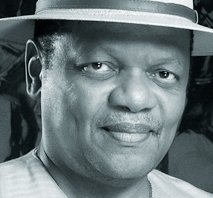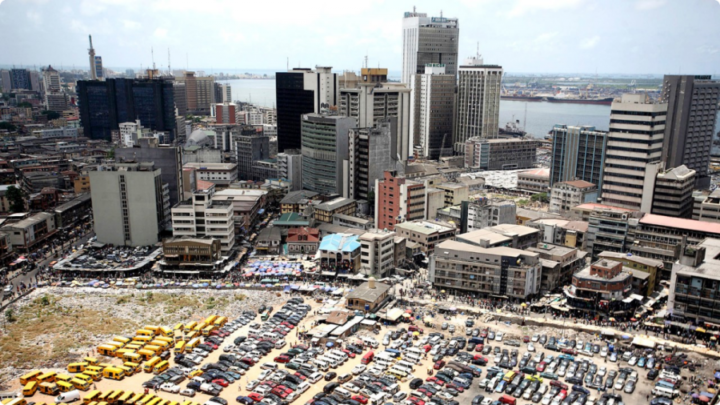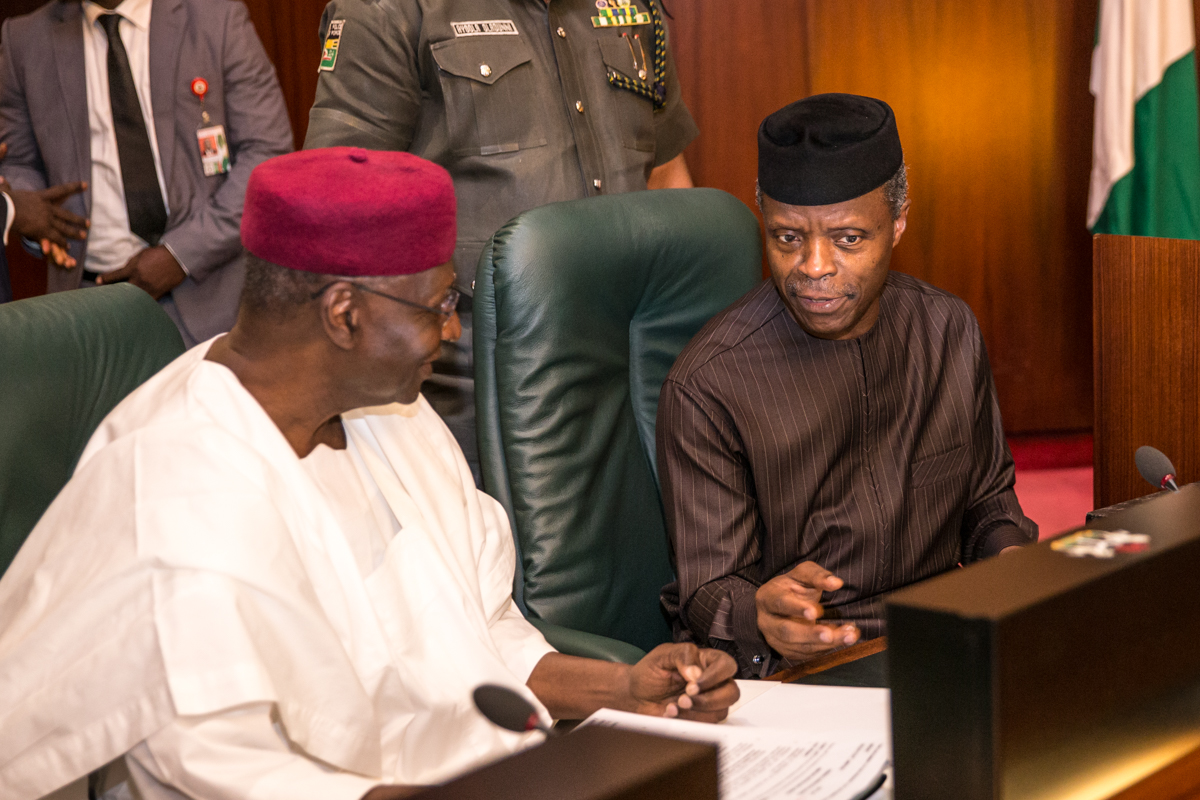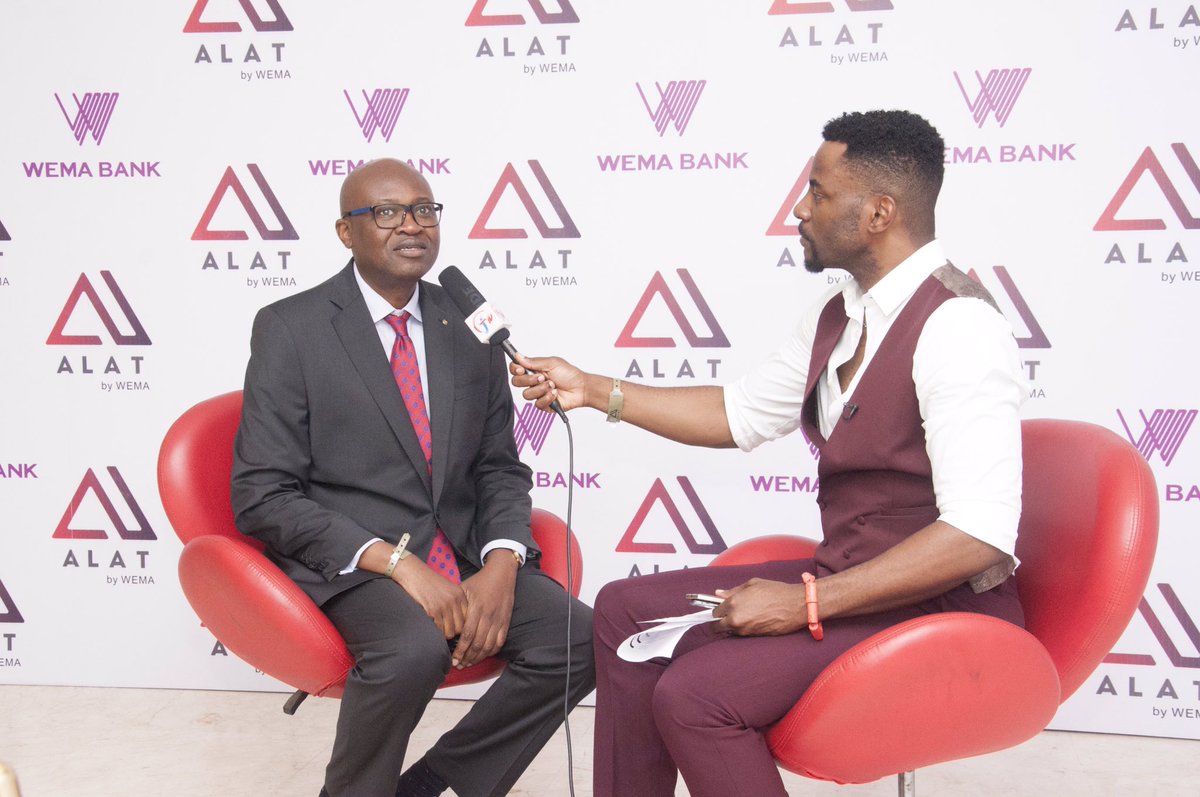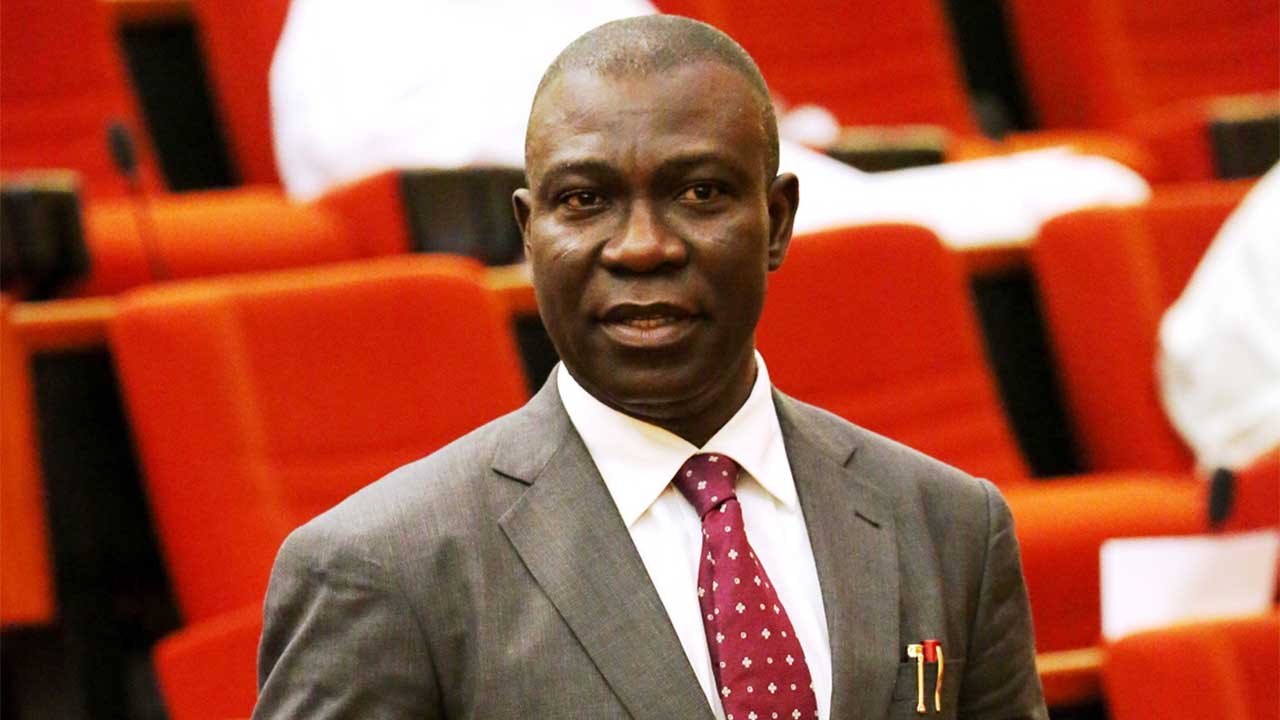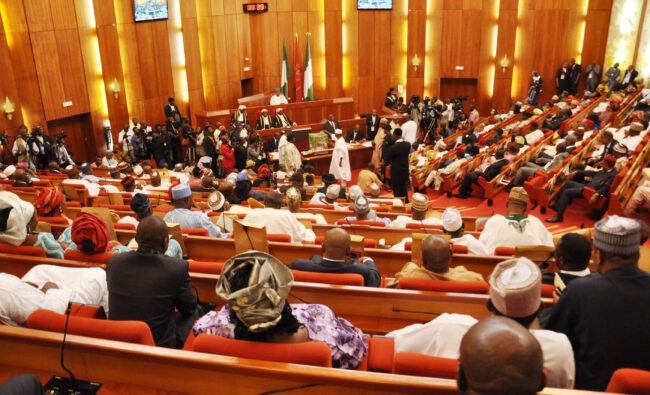In what direction do we want our economy to evolve? I would guess we can all easily agree that we want rapid economic growth of the inclusive type which speedily reduces poverty because it also provides or contains safety nets for the extremely poor and needy and for disadvantaged persons.
Do we want good governance?
I would guess we will all easily agree that we want an open and just democratic society built on principles that abhor needless discrimination on the basis of gender, religion, tribe, age etc. and where the rule of law is respected by all.
How do we want Nigeria to be repositioned?
Advertisement
I would guess we would all agree that we want Nigeria to become the true giant of Africa and the leader of the black race and an emerging world power. All of us gathered at this dinner can easily agree on these objectives and goals because we share largely the same vision. From an early age, as King’s College boys, we were fed this diet which we assimilated and still believe in.
So what went wrong with Nigeria and what can we do or what policies should we advocate to help achieve the Nigeria of our dreams?
If the emphasis is on the evolving economy then my task is made a little easier because my thoughts on the Nigerian economy are made public periodically. Sometimes, there is a need for a major revision, but most times (and it is too often for my liking), I only need to regurgitate the most recent thoughts that I expressed publicly. Same is true now.
In the first quarter of 2017 (January 19 to be precise), I was one of only two speakers at the 14th Daily Trust Dialogue (the other speaker was the finance minister) which took place in Abuja and the topic we were both given was Beyond recession: Towards a Resilient Economy.
Advertisement
During my contribution at that session, I made it clear that, in my opinion, we were currently facing an economic crisis in Nigeria. If you do not believe me, please speak to the unemployed youths nearest to you.
In terms of a response to the economic crisis, I cautioned that what was needed was a “bold, holistic and audacious effort to harmonise fiscal, monetary, exchange rate, trade and macroprudential policies in a seamless and concerted manner”. The Federal Government of Nigeria (FGN) has since launched its Nigeria economic recovery & growth plan (NERGP) with great fanfare.
It is good that we now have a plan because even a timid plan is better than no plan at all. Yes, in my opinion, the NERGP that we were given was not a bold, holistic and audacious plan. Indeed, it is more akin to a timid plan that may just about leave us with negative GDP per capita growth throughout the plan period unless something gives. Perhaps the plan was timid because the political economy was not right or dare I say the political will was not there to pursue some of the major and necessary reforms. Politics often gets in the way of economics and vice versa and so none of this is new.
Rather than allowing ourselves to be distracted by FGN’s timid plan, I have opted to revisit my contribution at the Daily Trust Dialogue where I identified Eleven Major Impediments to Speedy Economic Recovery. In my opinion, these eleven items are still the most
important impediments to rapid growth and so this evening I will attempt to build something close to a scorecard for each of the eleven major impediments and together we will point out/agree if there has been an improvement or some positive traction since my January 19, 2017 speech.
Advertisement
The good news is that there has been significant progress on a few of the items and that is very encouraging. Of course, the bad news is that on some items, there has been absolutely no change whatsoever except to launch personal attacks on the proponents of some of these ideas e.g. the recent cheap verbal assaults on the Emir of Kano, who is one of us.
If the intention is to silence all messengers who speak up on the need to embrace badly needed economic reforms to rescue impoverished Nigerians, then I urge all of you gathered in this room plus our King’s brethren all over the world to take up the challenge and speak up in a bold and concerted manner that ensures that, those who seek to cower us, will only conclude that their silly strategy of attacking every messenger has backfired terribly.
I now turn to the 11 impediments:
1. FOREIGN EXCHANGE
Advertisement
The Central Bank of Nigeria (CBN) appears to have heeded my January 2017 public warning on the futility of starving almost all sectors of the economy (90% of GDP) of badly needed forex because they wanted manufacturers (accounting for just 10% of GDP) to receive 60% of the available forex. CBN also woke up and finally saw the need to make little sums of forex available through the banks (at N375/$1, later reduced to N360/$1) to the hundreds of thousands of individuals who had been needlessly starved before. Driving all these people to the parallel market in droves to access forex for personal travel, business travel, school fees, medical bills etc.was cruel and pointless.
Having met their little needs through CBN most of them have since exited the parallel market thereby causing the Naira to rapidly appreciate there from N520/$1 to N380/$1 at present. In a nutshell, there has been significant progress here since January 2017.
Advertisement
Sadly, CBN appears to have since embraced multiple exchange rates, bank quotas and all sorts of special forex Windows as part of deliberate policy. It is mind boggling and very difficult to understand why Nigeria, in 2017, would be embracing multiple exchange rates which have been rejected globally as a bad idea that was only ever embraced by intellectually and/or morally bankrupt persons. There is no known economic theory on earth that favours multiple exchange rates as a viable medium and/or long-term economic policy prescription.
The instrument that is globally accepted for discriminating between types of users is trade policy, which can administer
tariffs, levies and special taxes.
Advertisement
My hope and prayer, therefore, is that CBN recognises that it needs to speedily work towards dismantling this embarrassing concoction of multiple exchange rates, bank quotas and special windows in record time. The clock is therefore still ticking on all this.
2. REACHING SOME ACCOMMODATION WITH NIGER DELTA MILITANTS.
Advertisement
On this item, on January 19, 2017, I said (and I quote): “The FGN should urgently pursue high-powered negotiations which should be brokered by persons with a healthy track-record in this activity and the ancillary pipeline protection business.
In the longer term, I favour a constitutional amendment that reserves a one per cent (1%) royalty payment to immediate host communities on ALL mining and mineral producing activity (including limestone, oil, precious stones etc.).”
The good news is that significant progress has been achieved here following the mature and level-headed “diplomatic initiatives” led by the Vice President in recent months. FGN should remember that appeasing militants is necessary in the short term, but the long-term solution is to embrace the constitutional amendment I refer to above.
3. STRATEGIC ASSET SALES
In January, I pointed out that Strategic Asset sales can yield $15 – $20bn over the course of the next two or three years if planned carefully. Instead of concentrating on new foreign loans alone, FGN should simultaneously carry out some strategic asset sales, especially the types that are accompanied by efficiency gains.
FGN has done nothing meaningful here. It is easy to get addicted to expensive foreign commercial loans/bonds and so that is continuing cause for worry.
4. DEREGULATION OF THE DOWNSTREAM PETROLEUM SECTOR
Nothing has changed since January. What FGN has done is to “cheat” a little by getting a pliant CBN to disguise the “subsidy” on petrol and kerosene via its morally repugnant multiple exchange rate system. It is much better to be truthful and transparent. If FGN is not prepared to deregulate petrol and kerosene pricing, then they should re-introduce the subsidy for these items in the 2017 Budget rather than distort the forex market to help them hide the subsidy out of view and away from legislative oversight – two wrongs do not make a right.
5. UNAFFORDABLE & BLOATED CIVIL/PUBLIC SERVICE
2% of the population (via recurrent expenditure on civil/public servants) will consume 100% of the FGN revenue budgeted for 2017.
Sadly, nothing has changed here. NERGP was timid here.
6. NEED FOR POLITICAL RESTRUCTURING
Less than 25% of our 36 states are economically viable. In the 1960s Sir Ahmadu Bello was the premier of the northern region. When he wanted to build roads he set aside salaries of a single works minister (also a parliamentarian), one permanent secretary plus a few staff, after which all the money available was spent on roads. Today, overheads associated with 19 state assemblies, 19 commissioners, 19 permanent secretaries and their privileged works’ ministry staff consume virtually all the funds set aside for roads, leaving little or nothing left over for actually building state government roads in the north.
This arrangement is unsustainable and so we must keep an open mind on the need for political restructuring. Nothing has changed yet here.
7. SOCIAL AND PHYSICAL INFRASTRUCTURE DEFICIT
By definition, tackling these is a continuous and non-stop task and so let me be fair and assume that FGN has worked hard on improving the power supply situation since January and that FGN, together with the 36 state governments, are working every day towards improved transportation (road, rail etc) and also improved healthcare and education.
You can each measure actual results here by yourselves and please remember that there may be vast differences in what we each observe on these items depending on our respective geographical locations.
8. DYSFUNCTIONAL LEGAL SYSTEM
I said in January that our new chief justice of the federation (CJ) must take a lead on this and spearhead radical reforms because justice delayed is justice denied. People now take the law into their own hands because they refuse to wait 23 years to pursue a law suit from high court to appeal court and on to the supreme court as my late father had to do in the Amayanabo of Opobo Case which is very well documented.
The clock too is ticking on this, as we look up to the new CJ to see if anything meaningful will change during his tenure.
9. ANTICORRUPTION CRUSADE & THE RULE OF LAW
This was supposed to be one of the greatest strengths of President Buhari. Sadly, every minor gain recorded here is marred by the insistence on over-zealous security chiefs to launch a personal vendetta at the opposition. I am grateful that we still have men of conscience in our society like senator Shehu Sani who pointed out that it is ridiculous to use “insecticides” on your opponents, whilst using “deodorant” on your own aides and party members.
Little wonder that every crook in the country is caught up in a stampede to join the ruling political party? Even more disturbing is FGN’s mean-spirited and dangerous penchant for disobeying court orders. The assault on the rule of law is therefore led by FGN itself and now a few governors are copying them. The end-result of all this may well be anarchy. As FGN continues to disobey court orders which called for the mere release of suspects on bail, has anything really changed here since January?
Also, new avenues of “legalised corruption” are being opened up every day, such as CBN’s unwieldy multiple exchange rates. This is made possible because there appears to be no understanding of the fact that corruption is easier prevented than cured. FGN is chasing the
symptoms of corruption and arresting a few beneficiaries of corruption, whilst opening up new and more lucrative avenues for corruption by increasing rewards for rent-seeking behaviour everyday via the adoption of poor policy choices.
10. RESTORING BUSINESS CONFIDENCE
In January, I advocated that: “restoring business confidence should be the primary preoccupation guiding virtually every statement by public officers.”
There has been significant progress here. A few ministers and some other key regulators appear to have gotten the right message as they have toned down the rhetoric that frightens away investors. Indeed, the jury is still out on recent initiatives spearheaded by FGN to make it easier for people to do business in Nigeria. That the initiatives exist at all and continue to take root is welcome.
11. BEEFING UP THE REGULATORY AGENCIES
I pointed out in January that it was dangerous for FGN to dissolve the boards of regulatory agencies and not have the discipline to immediately fill the vacancies. This is because regulatory agencies have the powers to destroy businesses and therefore large swathes of the economy through one bad pronouncement or action.
This is why virtually all the laws that govern these agencies provided for other board members, commissioners or councillors who could help checkmate the excesses of the CEO. No CEO should be entrusted to operate at the top of a regulatory agency as a Lone Wolf. Doing so destroys the checks and balances, which the laws envisaged.
Since January, FGN has appointed board members or commissioners for CBN, Pencom, NERC etc and so there has been some considerable progress here. Sadly, some of the appointments (in terms of specific individuals chosen) violated the laws under which the regulatory agencies were set up.
CONCLUSION
So, the scorecard is complete. The verdict is obvious. There has been considerable progress on some of the eleven identified impediments. Only God knows if the progress recorded would have come about if some of us did not speak out.
As products of a proud old school, who take pride in our ability to lead by example, do we really have a choice but to continue to speak out? So, let us continue to speak out defiantly until the Nigerian economy evolves in the desired direction and good governance is enthroned all over the land and Nigeria is repositioned as the true giant of Africa, the clear leader of the black race and an emerging world power. So help us God!
(A keynote address presented by Atedo N A Peterside CON, chairman & founder of ANAP Business Jets Limited and also chairman of Cadbury Nigeria Plc, at the King’s College Old Boys’ Association (Abuja Branch) 1st quarterly dinner on Friday, April 28, at Transcorp Hilton Hotel, Abuja)
Twitter @AtedoPeterside
Add a comment
